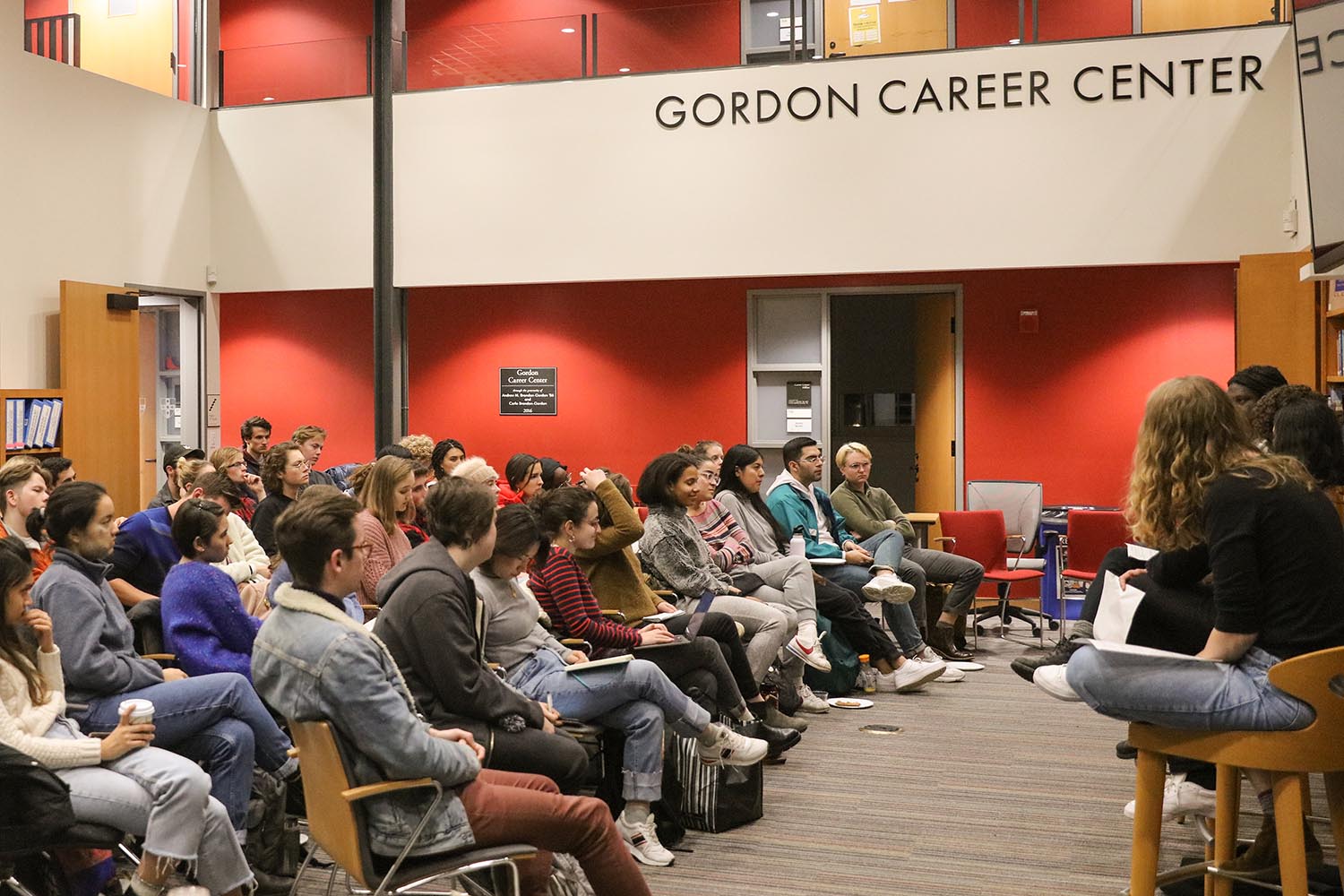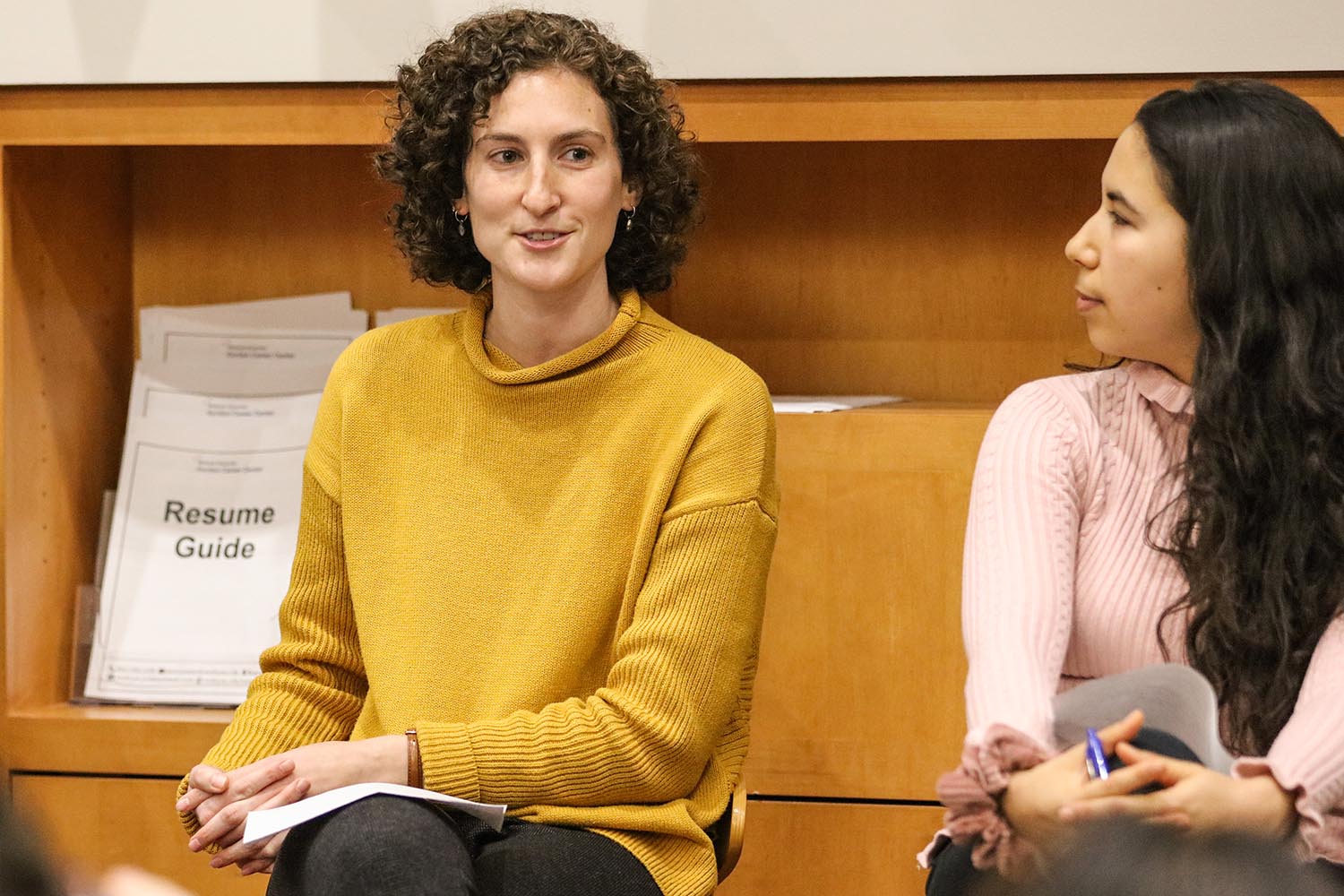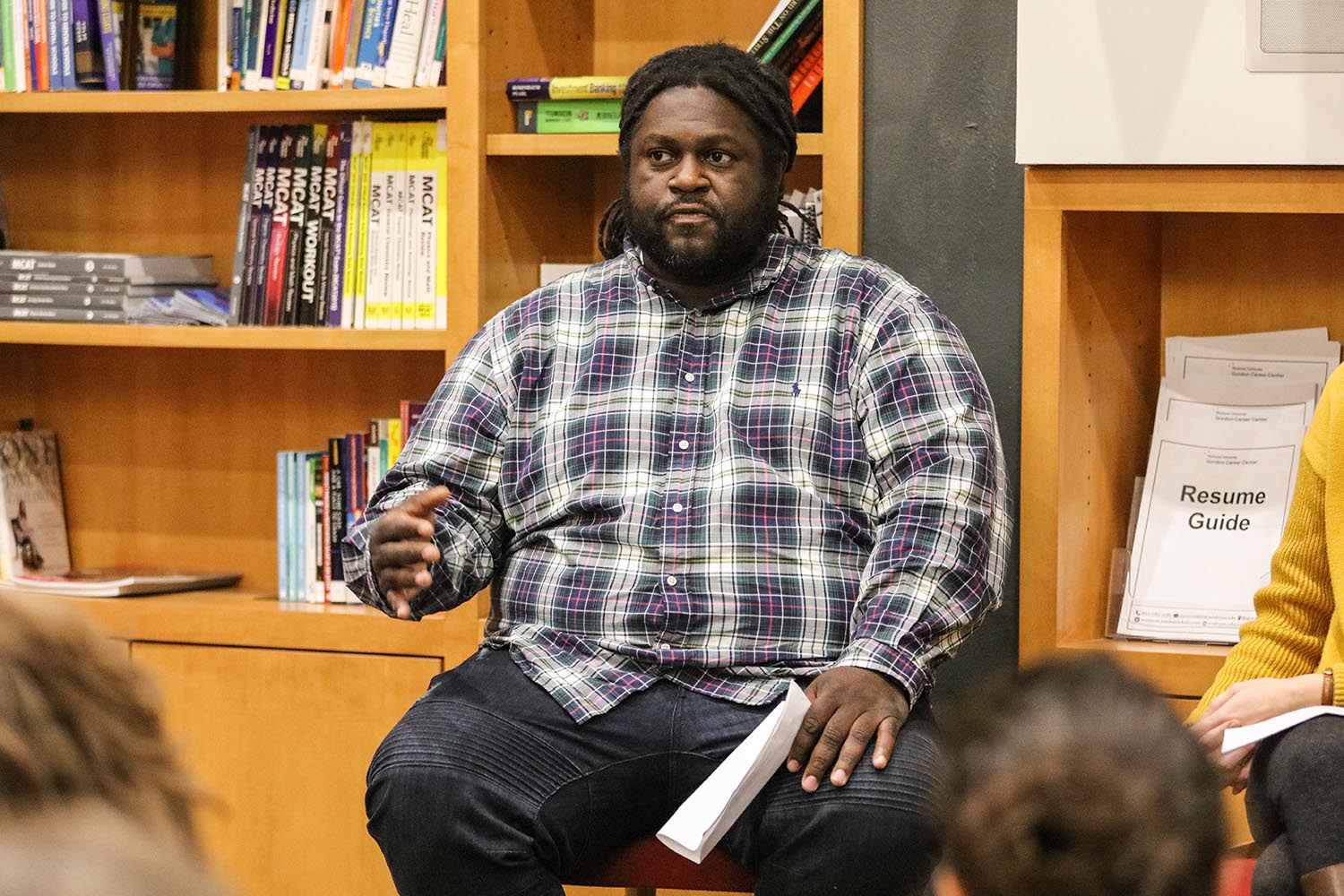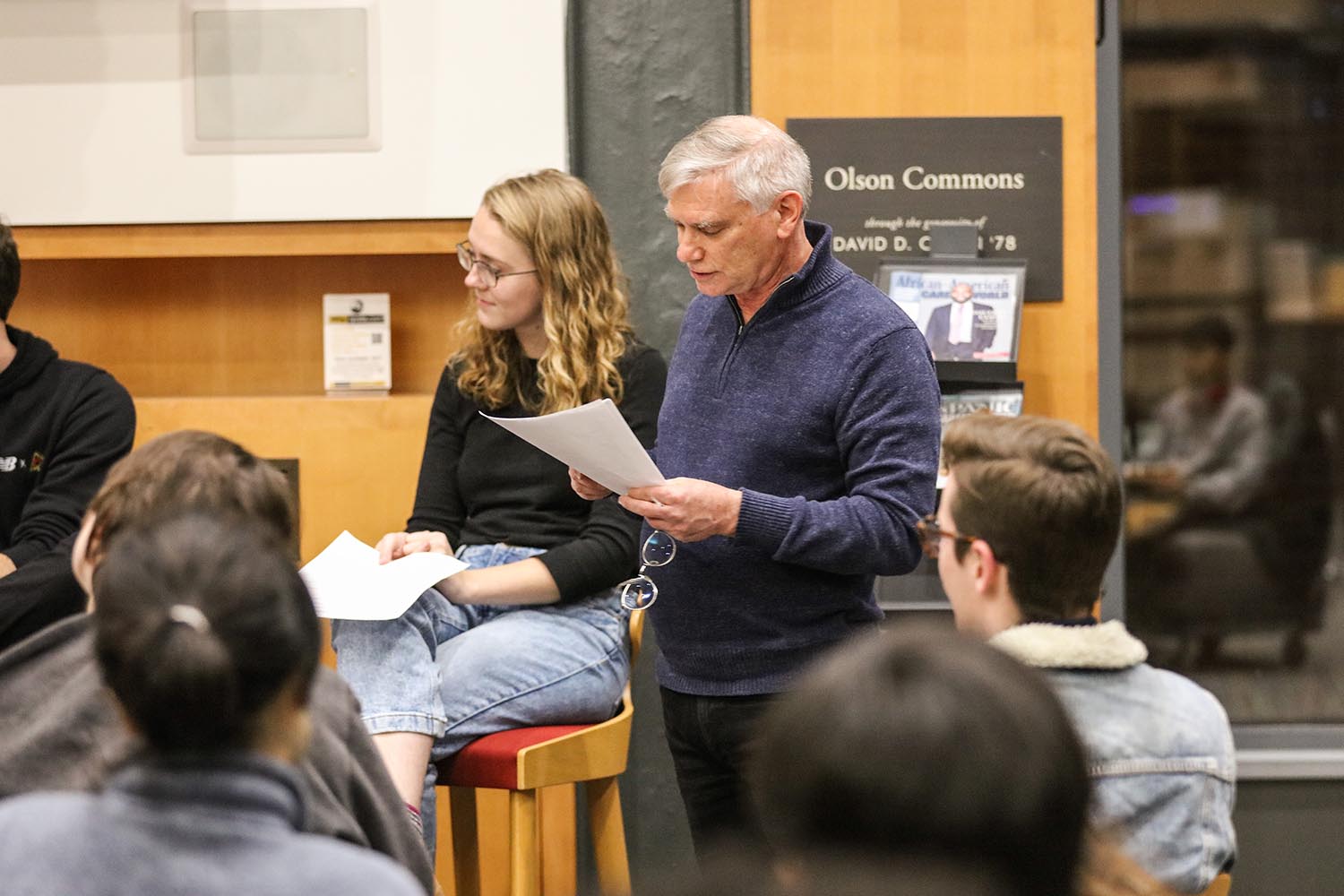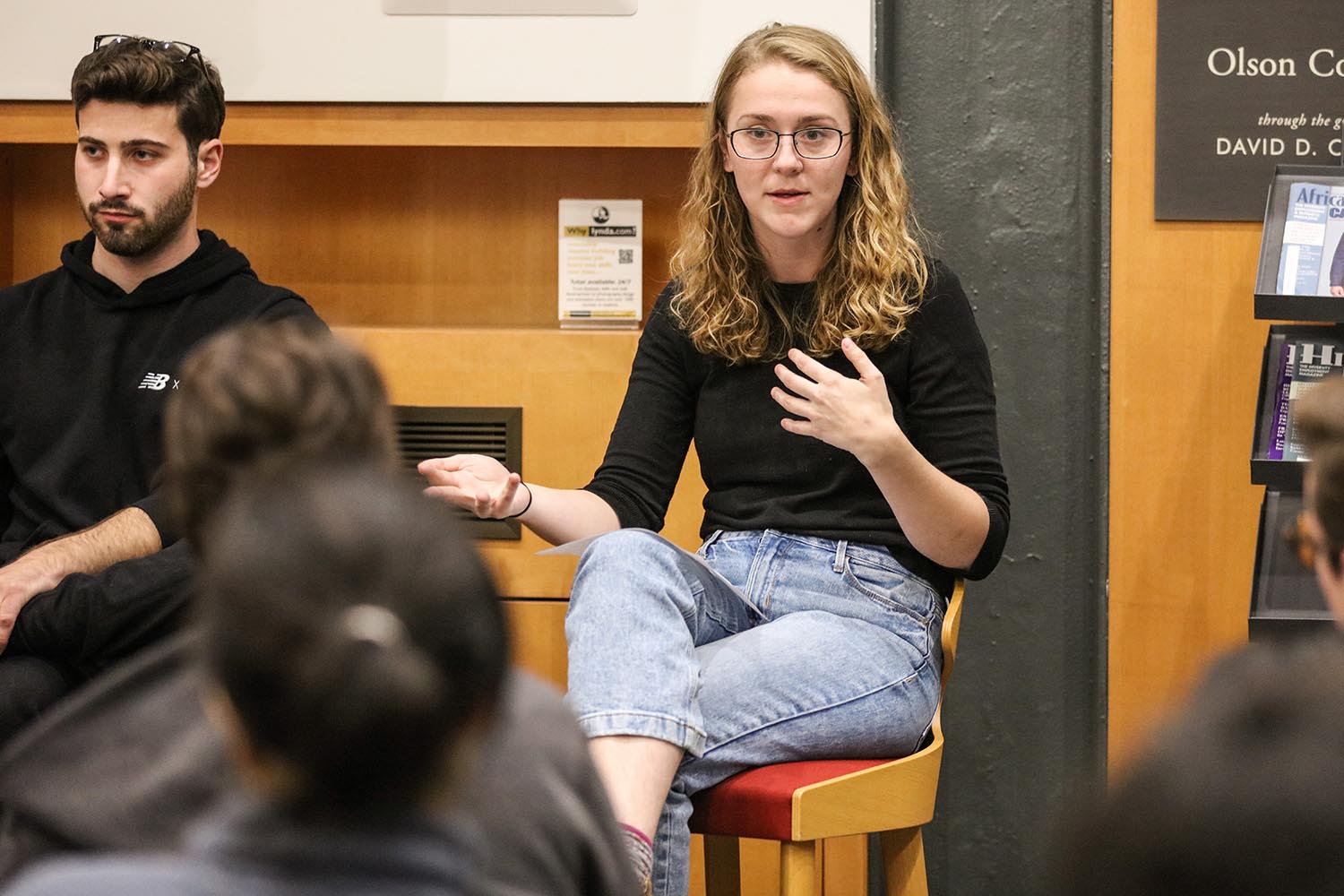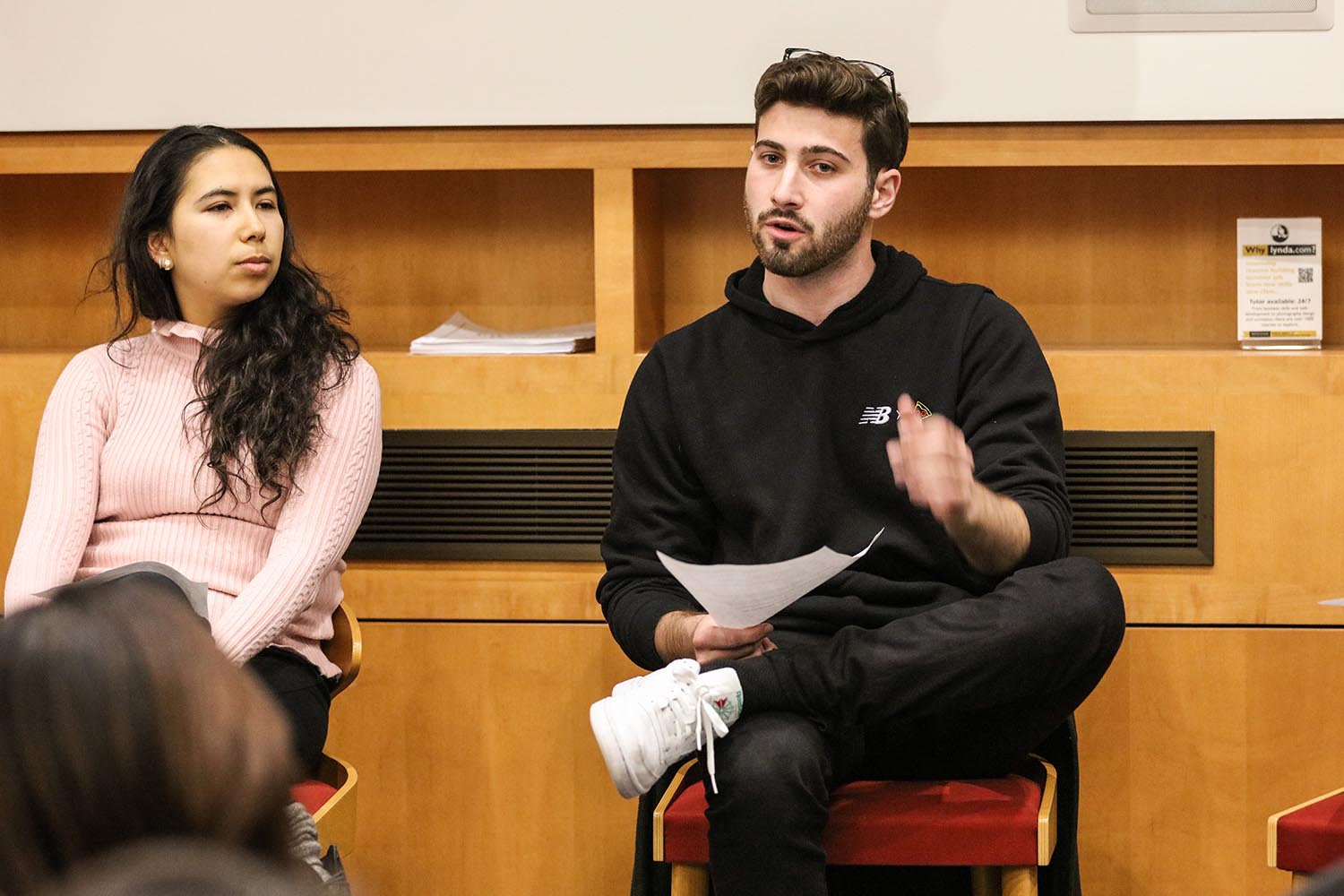Alumni Speak with Students about Careers in Public Policy, Criminal Justice Reform
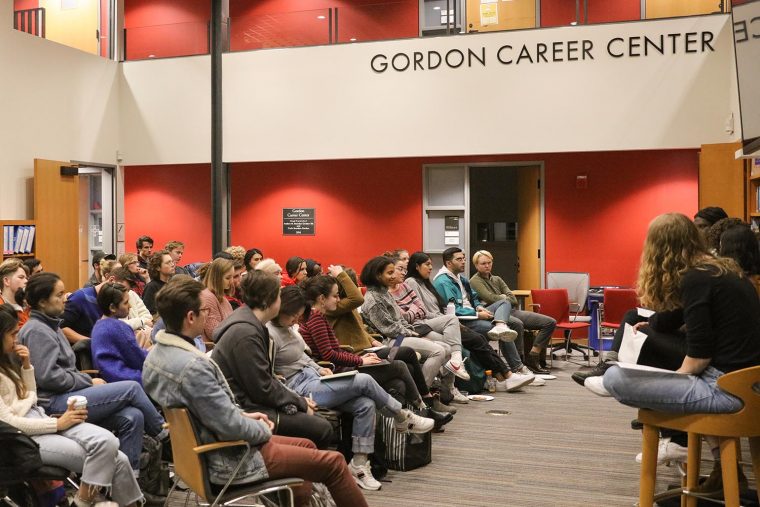
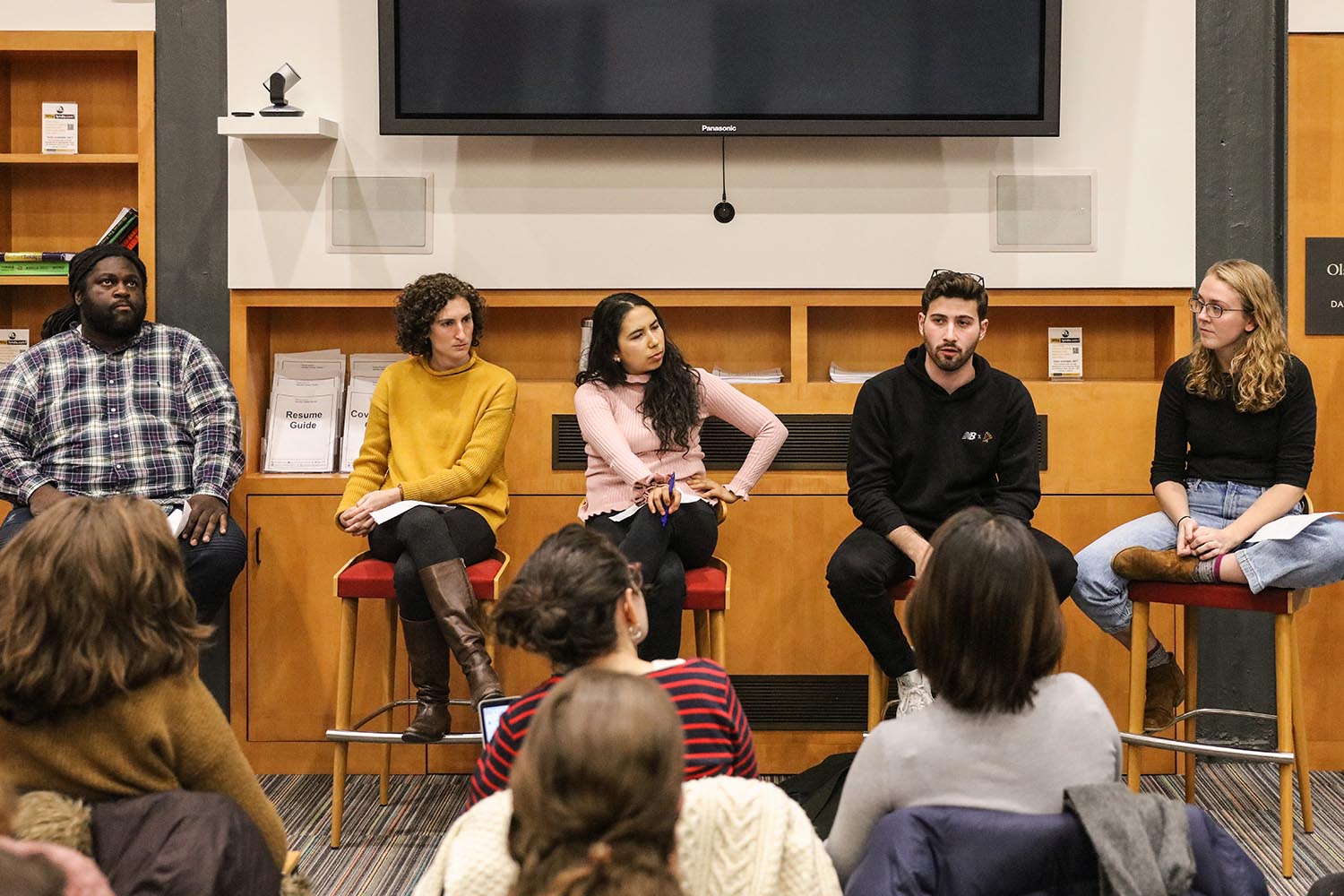
More than 50 students attended an alumni conversation on “Careers in Public Policy and Criminal Justice Reform” Nov. 13 at the Gordon Career Center.
Each of the panelists: Sarah Cassel ’13, James Jeter (who earned his degree in 2016 while incarcerated through Wesleyan’s Center for Prison Education), Lexi Jones ’17, Aaron Stagoff-Belfort ’18, and Nina Stender ’16 are working in Connecticut, Massachusetts, and New York, analyzing and impacting policies dealing with inhumane jail conditions, policing, housing inequality, and issues around incarceration.
Stagoff-Belfort and Jim Kubat, associate director for job and internship development at the Gordon Career Center teamed up to assemble this dynamic panel as part of the career center’s ongoing mission to support students as they transition into the world of work.
“Three things are true,” Kubat explained. “1. There is a broad effort underway by a variety of governmental agencies and nonprofit organizations to reform our criminal justice system through shaping and changing public policy; 2. A Wesleyan education is excellent preparation for public policy work; and 3. Wesleyan alumni are demonstrating points 1 and 2 every day.”
For some students, starting a career in policy work can be daunting. The panelists provided their own perspectives.
Stagoff-Belfort explained, “At Wesleyan, I was surrounded by people passionate about politics, social change, and learning. It completely blindsided me and made me want to educate myself about the things I cared about as much as possible. Wesleyan taught me how to be more skeptical and to ask better questions, think critically and strategically, and write efficiently and effectively, all valuable skills in making and thinking about policy.”
Stender offered, “My Wesleyan liberal arts education prepared me for policy work by teaching me how to ask good questions and invite various perspectives to the table.”
And Jones added, “Working in policy out of undergraduate study is less about your major, and more about your ability to research, write, and communicate complex ideas to lay audiences.”
Being well informed about current policy issue debates, interning in a relevant (but not necessarily directly-related) organization, and developing a familiarity with data collection and analysis were all recommended. “Having a basic proficiency in numbers helps you to have a conversation with people,” Jones said.
For Cassel, quantitative analysis skills are a must. “Get quantitative analysis skills pronto,” she said. “This helps you dismantle the arguments that some people have against policy change.”
Then the discussion took a practical slant. “My policy career started with growing up black and poor in America,” said Jeter. He stressed that knowing the people directly impacted by policy was essential, which put an unexpected twist on preparing for and learning how to make effective policy: the need to know the people who are to benefit from it. Cassel agreed: “Public policy work is about actively creating mechanisms to ensure that directly impacted individuals and communities are at the center of policy decisions.”
Stender advised, “Policy is most successful when you engage folks from across different sectors of public affairs, including those who are directly impacted by the policy.”
All agreed that building a list of contacts through networking and conducting informational interviews were valuable ways of breaking into the policy community. The evening concluded with a robust conversation and time for a Q&A, allowing students to ask their questions about working in policy post-graduation.
Additional photos are below:
